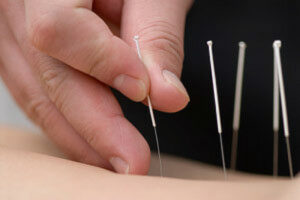Diabetes often comes with its share of challenges, and one of the common complications that many individuals face is diabetic nerve pain, also known as diabetic neuropathy. This condition can cause discomfort, tingling, and pain, particularly in the extremities. While medical interventions are crucial, various home remedies can complement your treatment plan and provide relief. In this blog, we’ll explore some effective and natural home remedies for diabetic nerve pain, promoting a holistic approach to managing this aspect of diabetes.
Contents
What Are Some Home Remedies For Diabetic Nerve Pain?
 While it’s important to note that home remedies for diabetic nerve pain may not replace professional medical advice and treatment, some individuals find relief through the following home-based approaches:
While it’s important to note that home remedies for diabetic nerve pain may not replace professional medical advice and treatment, some individuals find relief through the following home-based approaches:
Maintain Blood Sugar Levels
Proper management of blood sugar levels is fundamental in alleviating diabetic nerve pain. Consistently monitoring and maintaining blood glucose within the target range is essential. This involves adhering to prescribed medication regimens, following a diabetic-friendly diet, and incorporating regular physical activity into your routine. Elevated blood sugar levels can contribute to nerve damage, so working closely with healthcare professionals to manage diabetes effectively is crucial.
Balanced Diet
A well-balanced diet plays a vital role in supporting overall nerve health. Include a variety of nutrient-dense foods such as fruits, vegetables, whole grains, and lean proteins in your meals. These foods provide essential vitamins and minerals necessary for nerve function. Additionally, maintaining a healthy diet helps control weight, reducing the strain on nerves and promoting optimal blood circulation throughout the body.
Manage Weight
Maintaining a healthy weight is particularly important for individuals with diabetes experiencing nerve pain. Excess body weight can exacerbate nerve damage and contribute to increased discomfort. A healthcare professional can provide personalized guidance on weight management strategies, incorporating a combination of dietary changes, regular exercise, and lifestyle modifications.
Exercise Regularly
Regular physical activity is beneficial for managing diabetic nerve pain. Exercise improves blood flow, reduces inflammation, and helps control blood sugar levels. Aim for at least 150 minutes of moderate-intensity aerobic exercise per week, such as walking or swimming. Consult your healthcare provider before starting a new exercise routine to ensure it aligns with your health status and individual needs.
Warm Baths
Taking warm baths can be a soothing and relaxing home remedy for diabetic nerve pain. The warmth helps relax muscles and may provide temporary relief from pain and discomfort. Ensure the water temperature is comfortable, and consider adding Epsom salts to the bathwater, known for their potential to alleviate muscle soreness and promote relaxation.
Cold Compress
Applying a cold compress or ice pack to the affected areas can help reduce inflammation and numbness associated with diabetic neuropathy. Wrap the ice pack in a thin cloth and apply it to the affected area for short durations. Cold therapy can provide a numbing effect and may be particularly helpful during flare-ups of nerve pain. Always be cautious not to apply ice directly to the skin to avoid frostbite.
Alpha-Lipoic Acid Supplements
Alpha-lipoic acid is an antioxidant that has shown promise in alleviating symptoms of diabetic neuropathy. It may help reduce oxidative stress and inflammation, contributing to improved nerve function. However, it’s important to consult with your healthcare provider before adding any supplements to your routine, as they can assess potential interactions with other medications and determine the appropriate dosage for your individual needs.
Acupuncture
 Acupuncture is an alternative therapy that involves the insertion of thin needles into specific points on the body. Some individuals with diabetic nerve pain report relief after acupuncture sessions. This practice is thought to stimulate nerve fibers and release endorphins, the body’s natural painkillers. Before trying acupuncture, discuss it with your healthcare provider to ensure it is a safe option for you, considering your overall health and any existing medical conditions.
Acupuncture is an alternative therapy that involves the insertion of thin needles into specific points on the body. Some individuals with diabetic nerve pain report relief after acupuncture sessions. This practice is thought to stimulate nerve fibers and release endorphins, the body’s natural painkillers. Before trying acupuncture, discuss it with your healthcare provider to ensure it is a safe option for you, considering your overall health and any existing medical conditions.
Biofeedback
Biofeedback is a technique that helps individuals gain awareness and control over certain bodily functions, including responses to stress. By learning to control physiological responses, such as heart rate and muscle tension, individuals may experience a reduction in pain perception. Biofeedback can be done with the guidance of a trained professional, and it is important to discuss its suitability with your healthcare provider before incorporating it into your routine.
Manage Stress
Chronic stress can exacerbate diabetic nerve pain, as stress hormones may contribute to inflammation and heightened pain sensitivity. Practices such as meditation, deep breathing exercises, and yoga can be effective in managing stress levels. Integrating stress-reducing techniques into your daily routine can not only benefit your mental well-being but also contribute to a reduction in neuropathic pain.
Aromatherapy
Aromatherapy involves the use of essential oils to promote well-being. Certain essential oils, such as lavender, chamomile, and peppermint, are known for their calming and soothing properties. Dilute essential oils with carrier oil and apply them topically to the affected areas or use them in a diffuser to create a relaxing atmosphere. As with any alternative therapy, consult with your healthcare provider to ensure safety and to discuss any potential interactions with existing treatments.
Remember, individual responses to these remedies vary, and it’s crucial to consult with your healthcare provider before trying new approaches, especially if you have pre-existing health conditions or are taking medications. They can provide personalized advice based on your specific health needs and ensure that any home remedies align with your overall diabetes management plan.
What Ointment Is Good For Diabetic Nerve Pain?
 There isn’t a specific ointment that universally treats diabetic nerve pain. However, some individuals find relief from nerve pain using topical treatments containing certain active ingredients. Here are a few ingredients commonly found in over-the-counter topical treatments for nerve pain:
There isn’t a specific ointment that universally treats diabetic nerve pain. However, some individuals find relief from nerve pain using topical treatments containing certain active ingredients. Here are a few ingredients commonly found in over-the-counter topical treatments for nerve pain:
- Capsaicin
Capsaicin is derived from chili peppers and is often used in topical creams. It works by desensitizing nerve receptors, providing temporary relief from pain. Some individuals may experience a warming or burning sensation upon application.
- Lidocaine
Lidocaine is a local anesthetic that can be found in various topical formulations. It works by numbing the skin and underlying tissues, temporarily alleviating pain. Lidocaine patches or creams may be recommended for localized pain relief.
- Menthol
Menthol is a common ingredient in topical analgesics. It produces a cooling sensation that can distract from pain and discomfort. Menthol creams are available over-the-counter and may provide relief for some individuals.
- Diclofenac
Diclofenac is a nonsteroidal anti-inflammatory drug (NSAID) that is sometimes formulated into topical gels. It works by reducing inflammation and may help alleviate pain associated with neuropathy. However, it’s essential to use NSAIDs cautiously, as they can have systemic effects.
Before using any of these topical treatments, it’s important to discuss your symptoms with your healthcare provider. They can guide whether a topical treatment is appropriate for your specific case and recommend a product with the appropriate ingredients and concentration.
What Is The Importance Of Home Remedies For Diabetic Nerve Pain?
 Home remedies for diabetic nerve pain play a crucial role in complementing medical interventions and enhancing the overall management of diabetic neuropathy. Here are several reasons highlighting the importance of incorporating home remedies:
Home remedies for diabetic nerve pain play a crucial role in complementing medical interventions and enhancing the overall management of diabetic neuropathy. Here are several reasons highlighting the importance of incorporating home remedies:
- Holistic Approach to Management: Home remedies provide a holistic approach to managing diabetic nerve pain. By addressing lifestyle factors, diet, and self-care practices, individuals can contribute to their overall well-being in addition to medical treatments prescribed by healthcare professionals.
- Empowerment and Self-Care: Engaging in home remedies empowers individuals to actively participate in their care. It encourages a sense of self-efficacy, allowing individuals to take proactive steps in managing their symptoms and promoting a healthier lifestyle.
- Minimizing Dependency on Medications: While medications prescribed by healthcare providers are essential, some individuals may find that incorporating home remedies allows for a reduction in dependency on certain medications. This can be especially important for those concerned about potential side effects or interactions.
- Cost-Effective Solutions: Home remedies are often cost-effective compared to medical treatments. Practices like mindfulness, relaxation techniques, and dietary modifications generally involve minimal expenses. And, making them accessible options for individuals managing diabetic nerve pain.
- Customization to Individual Needs: Home remedies can be tailored to the individual’s preferences and specific needs. What works for one person may not work for another, and home remedies provide flexibility for individuals to find the approaches that suit them best.
- Reducing the Impact of Lifestyle Factors: Lifestyle factors, such as diet and exercise, play a significant role in diabetes management and can impact the progression of diabetic neuropathy. Home remedies help individuals address these factors, potentially slowing down the advancement of nerve damage.
While home remedies are valuable, it’s essential to emphasize that they should not replace professional medical advice and treatments. Collaborating with healthcare providers ensures a comprehensive and personalized approach to managing diabetic neuropathy.
Conclusion
In conclusion, generally, diabetic nerve pain requires a comprehensive approach that combines medical guidance with practical home remedies. From maintaining stable blood sugar levels and adopting a balanced diet to exploring exercises, warm baths, and topical creams, these simple and accessible strategies contribute to alleviating discomfort. Home remedies for diabetic nerve pain empower individuals to actively participate in their well-being and offer symptomatic relief.
Importantly, they foster a holistic lifestyle that not only addresses nerve pain but also promotes overall health. While these home remedies are beneficial, it’s crucial to work collaboratively with healthcare providers to ensure a tailored and effective plan for managing diabetic neuropathy, ultimately enhancing the quality of life for individuals navigating this challenging condition.
Do you want to get rid of diabetes? Join our online diabetes treatment program and reverse Diabetes naturally through lifestyle changes such as a Personalized Diet plan, Exercise, Yoga, dieticians, and health coaches.

